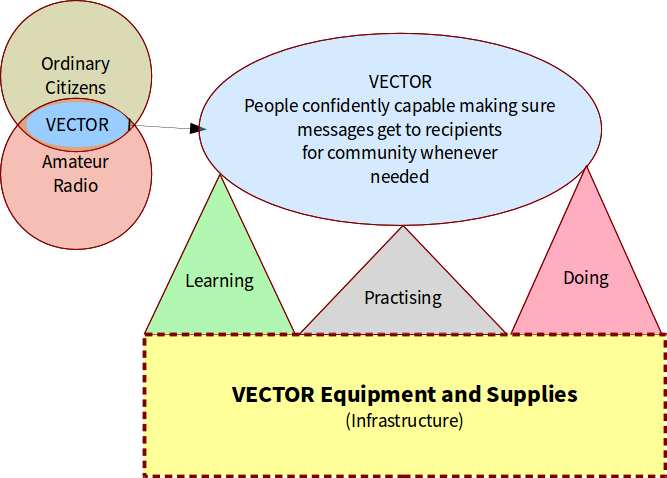To do a good job examining the why for an organization would involve getting members of the organization into small groups to work through ideas. Then bring together all those ideas to get to the deep why.
For now, let's reflect on what I have observed in VECTOR.
I volunteer as a director in VECTOR. VECTOR is a local amateur radio organization that purely exists to serve the City of Vancouver's Office of Emergency Management. Amateur Radio Operators formed this organization in 1998. VECTOR started with and maintains strong ties with the Vancouver Police Department, Vancouver Fire and Rescue Service and the Vancouver Office of Emergency Management. At the same time, VECTOR is a registered non-profit society in the province of British Columbia.
Why does VECTOR exist?
To build what Vancouver needs so that neighbourhoods can use radio to coordinate the work of responding to a major disaster.
VECTOR's primary responsibility is supporting the City Office of Emergency Management and Emergency Social Services. VECTOR also advises and supports neighbourhood preparedness efforts. New City commitments to Resilient Communities and newly emerging neighbourhood efforts will likely rekindle VECTOR's direct connection to neighbourhoods.
How does VECTOR do that?
-
Building hardware assets amateur radio operators (volunteers) can use at key places
-
Nurturing prepared, confident, competent amateur radio operators (volunteers)
-
Connecting with neighbourhood, local and regional groups to make sure amateur radio operators (volunteers) and equipment are ready to go
-
Promoting involvement in emergency preparedness and radio operations
- Maintaining amateur radio hardware assets regularly
I can find these elements in our official vision and mission.
Official Mission
When examining VECTOR's stated vision and mission, I get the following diagram. VECTOR has two key elements: people and equipment.
We execute our vision through two types of action:
- preparing - planning, learning, sharing and assembling
- partnering - with other amateur radio groups, with City and local government agencies, the Salvation Army, and other non-government organizations.

